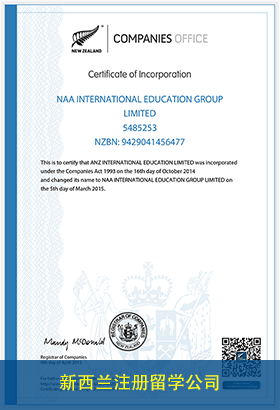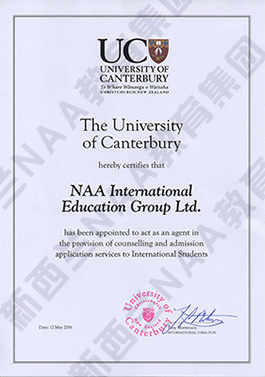坎特伯雷大学/The University of Canterbury
- 课程名称:
工程Bachelor of Engineering with Honours in Chemical and Process Engineering
- 课程级别:学士学位/Bachelor's Degree(7级)
- 课程代码:
- 学费:$41,000 NZD Per Year
- 学分:
- 开学时间:Expected February-2019
- 申请截止:
- 授课校区:The University of Canterbury
- 课程信息:
- supplying clean, safe drinking water
- creating sustainable energy opportunities
- improving society's health and well-being,
- providing a sustainable food supply.
- five compulsory courses and
- four further Intermediate Year courses which vary depending on which Engineering discipline you want to specialise in. The Intermediate Year is followed by three Professional Years of study in one of the Engineering disciplines. Entry to the Professional Years is limited and based on your performance in the first year(s). These years will focus on the relevant knowledge and skills you will need in your chosen discipline. During your degree you will complete 100 days (800 hours) of practical work placement.
Course details
Summary
Engineers revolutionize the world. With a chemical and process engineering degree you will do that by tackling some of society's greatest challenges:
Chemical and process engineers transform raw materials into processed, marketable products by chemical, physical or biological means. They take science experiments performed in the laboratory and operate them on a commercial-scale taking into account economics, safety and sustainability. Others are involved in the research and development of new products and processes, such as those in nanotechnology, biotechnology or advanced materials. It is the only traditional Engineering discipline that explicitly builds on Physics, Chemistry and Biological Sciences along with the mathematical rigour required of all engineers.
Minors in Bioprocess Engineering and Energy Processing Technologies
If you are interested in Biological Sciences as well as Engineering, the Bioprocess Engineering minor is worth considering. Bioprocess Engineering uses biology for sustainable and more effective processes and design of products such as protein, alcoholic beverages, vitamins, dairy products, detergents, confectionery, processed foods and clean water.
For those keen on sustainable engineering harnessing energy from natural resources, the Energy Processing Technologies minor will allow you to gain skills tackling environmental issues raised by extracting raw materials such as fossil fuels, and renewable energy.
Qualification structure and duration
The first year of the degree is called the Engineering Intermediate Year and comprises nine courses (120 points) which is made up of:
Career opportunities
Chemical and process engineers work in areas such as renewable energy, biofuels, environmental control, fermentation, waste treatment, food industry, biotechnology and pharmaceuticals.
Even with the current decline in gas reserves, the petrochemical industry continues to grow and employs chemical engineers at oil refineries and a number of gas processing plants. As new oil and gas fields are discovered demand for graduates will certainly increase.
Other graduates are employed helping to make aluminum, steel, fertilizers, food, pharmaceutical and medical products, and in related areas such as project coordination, waste treatment, research, consulting, marketing, computing and management.
Graduates are eligible for membership of both IChemE and IPENZ after a period of experience as a practicing engineer.
Entry criteria
NCEA entrance requirements - You should aim to have at least: 14 credits in Level 3 maths or calculus including both differentiation and integration; 14 credits in Level 3 physics; 14 credits in Level 3 chemistry. 18 credits are strongly recommended in all subjects.
International Baccalaureate (IB) Diploma -You will need to have: IB Score of 26 points; minimum of 4 HL (or 6 SL) in each of math's and physics (HL is recommended); minimum of 4 HL (or 6 SL) in chemistry.
Cambridge International Examination (CIE) - You will need to have: CIE Score of 140 points; maths and physics - D grade or better at A level or A in AS level; chemistry - D grade or better at A level or A in AS level.
Alternatively the Intermediate can be completed in more than one year (maximum of two years) with a minimum requirement of: CIE Score of 140 Points; D Grade at A-Level or C Grade at AS-Level in Mathematics; D Grade at A-Level or C Grade at AS-Level in Physics; preferably C Grade at AS-Level in Chemistry (discipline specific).
If you have not studied one or more of the required subjects, or did not achieve enough credits, but have University Entrance, you may consider an introductory pathway such as: taking a Head start summer course to catch up or; take an introductory course in specific Science subjects to start with (eg, MATH 101, PHYS 111 and CHEM 114). You could then take the Intermediate Year courses in Semester 2 and over summer, or do an extra year of study.
Other English language requirements: TOEFL PBT with a minimum score of 550 and TWE with a minimum score of 4.5; CCEL EAP Level 2 with a minimum C+ grade; CAE or CPE minimum score of 169 with at least 162 in reading, writing, listening and speaking; Pearson Test of English (Academic) - PTE with an overall score of 57 and no PTE communicative skills score below 50.
= 新西兰小学申请问题集 =







